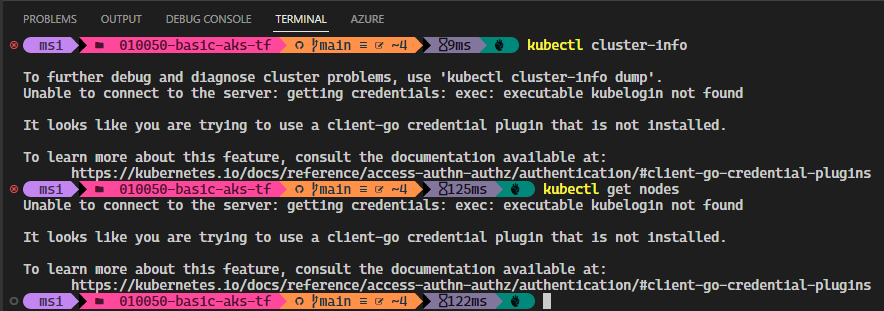I am doing a lab setup of EKS/Kubectl and after the completion cluster build, I run the following:
> kubectl get node
And I get the following error:
Unable to connect to the server: getting credentials: exec: exit status 2
Moreover, I am sure it is a configuration issue for,
kubectl version
usage: aws [options] <command> <subcommand> [<subcommand> ...] [parameters]
To see help text, you can run:
aws help
aws <command> help
aws <command> <subcommand> help
aws: error: argument operation: Invalid choice, valid choices are:
create-cluster | delete-cluster
describe-cluster | describe-update
list-clusters | list-updates
update-cluster-config | update-cluster-version
update-kubeconfig | wait
help
Client Version: version.Info{Major:"1", Minor:"17", GitVersion:"v1.17.1", GitCommit:"d224476cd0730baca2b6e357d144171ed74192d6", GitTreeState:"clean", BuildDate:"2020-01-14T21:04:32Z", GoVersion:"go1.13.5", Compiler:"gc", Platform:"darwin/amd64"}
Unable to connect to the server: getting credentials: exec: exit status 2
Please advise next steps for troubleshooting.

